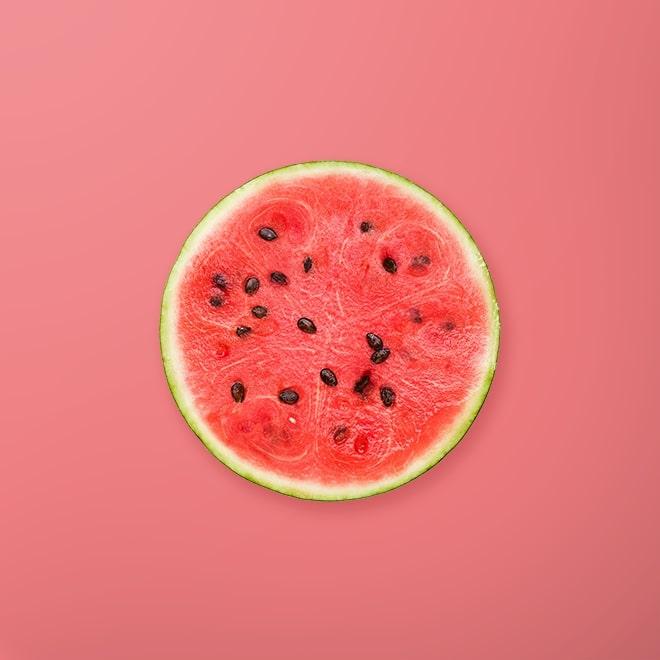Watermelon




The watermelon originates from southern Africa. The first documented harvest was in Egypt over 5,000 years ago. In fact, watermelon seeds were found in the tomb of the Pharaoh Tutankhamen! There are over 1200 types of watermelon, including yellow and white-fleshed varieties. They are a member of the Curcurbitaceae family, which also includes cucumbers, squash, and pumpkins.
Choose a watermelon that’s heavy for it’s size. The underbelly should have a creamy yellow spot, which indicates ripeness. If the spot is still greenish or white, it’s not ripe!
Look for symmetrical melons without soft spots or bruises.
It’s best to consume watermelons soon after purchase, as they don’t fare well at room temperature. Wrap leftovers in plastic wrap and store in the refrigerator for up to four days.
Make watermelon jello shots for an impressive boozy treat. Find the recipe below!
Pickle the rind of the watermelon for a simple and addictive BBQ snack.
Freeze cubed watermelon for summery and versatile “ice cubes”!
Watermelons are 92% water!
The white “seeds” in watermelon aren’t actually seeds, but empty seed coats.
Seedless watermelons are not genetically modified. They’re the result of hybridization, or a cross between different watermelon species.
Up to 85% of watermelons produced now are seedless!
While watermelon is delicious simply sliced, add a pinch of salt to bring out the sweetness in the flesh.
At your next BBQ, try quickly grilling thick slices of watermelon for 30 seconds on each side to slightly caramelize the surface.
Toss cubed watermelon into your morning smoothie instead of adding juice for a hydrating and refreshing twist.
Incorporate watermelon into a fresh fruit salsa. Pair it with grilled fish or serve with tortilla chips.
Unusually high in lycopene, which is important for cardiovascular and bone health, and has very strong antioxidant and anti-inflammatory properties. Red, ripe watermelons have the most lycopene.
High in Vitamin C, which is key for collagen production. A connective tissue, collagen is present throughout your organs, cartilage, and skin.
While the entire watermelon is full of nutrients, there are very high concentrations in the outer flesh.
Corrections or improvements? Email us at
content@sidechef.com